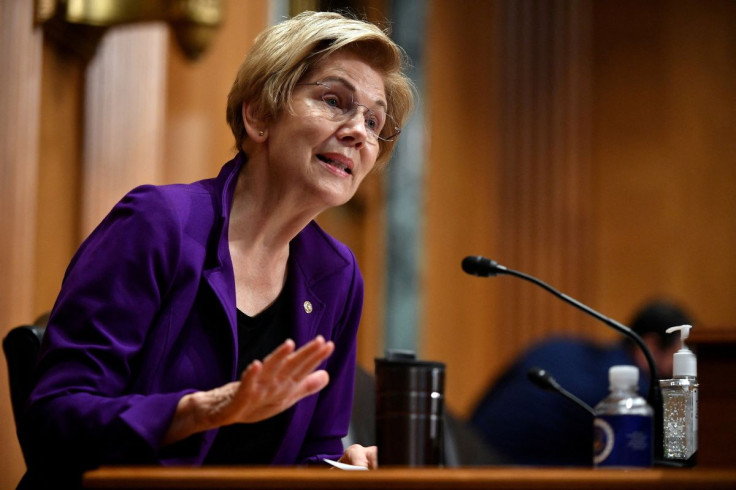Ex-government Officials Urge Congress To Strike Down Warren Bill Targeting Crypto Laundering

A group of former national security and military professionals have urged Congress to block a bill introduced by senators Elizabeth Warren, D-Mass. and Roger Marshall, R-Kan., that seeks to place cryptocurrency companies under anti-money laundering policies.
The group, alongside the Blockchain Association, wrote in a letter to Congressional leaders that the proposed Digital Asset Anti-Money Laundering Act (DAAMLA) "risks our nation's strategic advantage, threatens tens of thousands of U.S. jobs, and bears little effect on the illicit actors it targets."
They noted that the DAAMLA will "inadvertently hinder law enforcement and national security efforts by driving the majority of the digital asset industry overseas."
The group reiterated that they have "high-standing records" of military and public service, urging lawmakers to "learn from our distinct expertise on this matter." They asked lawmakers to have an "open mind and love of country" as they consider the advice of the undersigned.
Among the signatories were Christopher Grieco, former associate deputy attorney general of the U.S. Department of Justice (DOJ), Kyle Schneps, former officer at the Central Intelligence Agency (CIA), Alex Pruden, former U.S. Army Green Beret, and John Bridge, former chief inspector of the U.S. Marshals Service's financial surveillance unit.
Several other lawmakers have also expressed opposition to the bill, including Sen. Thom Tillis, R-N.C., who said he has "significant concerns about the likely impacts" of the DAAMLA due to the proposed extension of reporting requirements on financial institutions.
BREAKING: U.S. Senator Thom Tillis states he has “significant concerns about the likely impacts” of Liz Warren’s ‘#Bitcoin Ban Bill’.
— Dennis Porter (@Dennis_Porter_) January 3, 2024
This was done in response to the 2,500 letters sent by advocates informing Senators’ of their opposition. pic.twitter.com/qEuptZ4O20
On the other hand, Warren also has the support of some of her colleagues, including Gary Peters of Michigan, Richard Blumenthal of Connecticut, and Bob Casey Jr. of Pennsylvania.
Warren and Marshall said when they introduced the bill that it would "mitigate risks that digital assets pose to our national security by closing loopholes and bringing the digital asset ecosystem into greater compliance" through frameworks that govern anti-money laundering and terrorism financing.
The DAAMLA, introduced late in 2022, specifically targets "unhosted" digital wallets that allow users to "bypass" anti-money laundering regulations, financial institutions that allow transacting with digital asset "mixers" and anonymity-enhancing technologies, bank reporting on offshore accounts that use digital assets, and the reporting of ATM owners and administrators that allow digital asset transactions.
Before introducing the bill, Warren has also moved block crypto-related transactions in National banks. In October 2022, she led a group of Democratic senators to ask acting Comptroller Michael Hsu of the Currency to "withdraw existing interpretive letters that have permitted banks to engage in certain crypto-related activities" as the move "may have exposed the banking system to unnecessary risk."
© Copyright IBTimes 2024. All rights reserved.






















